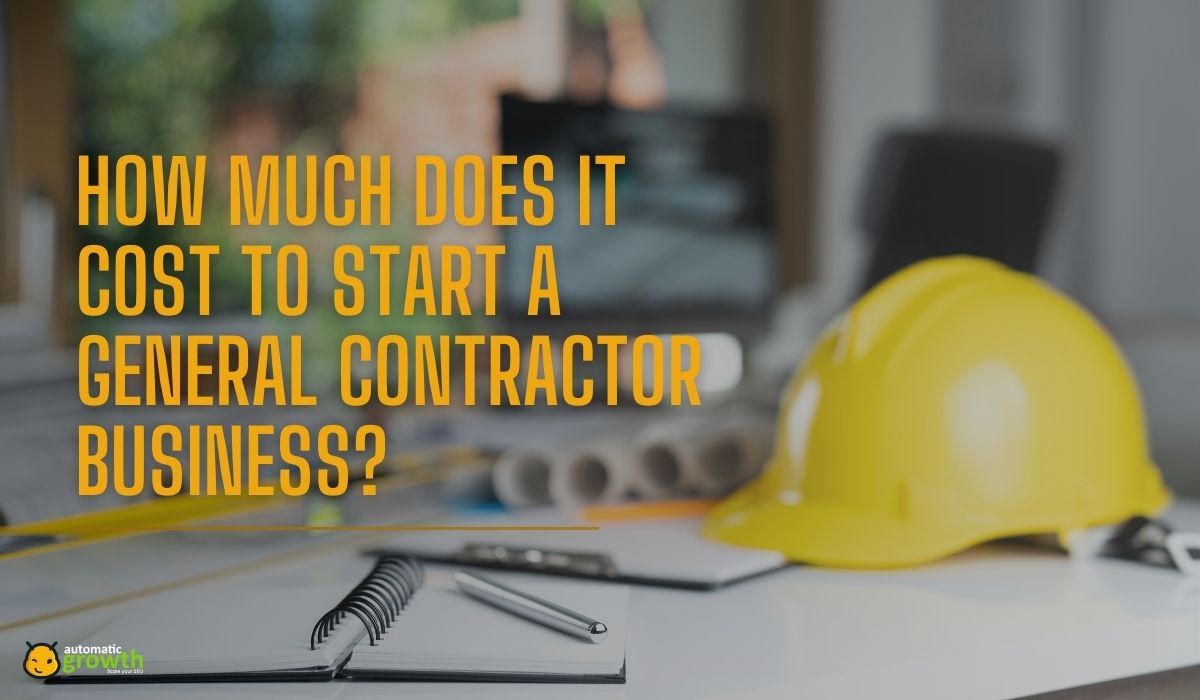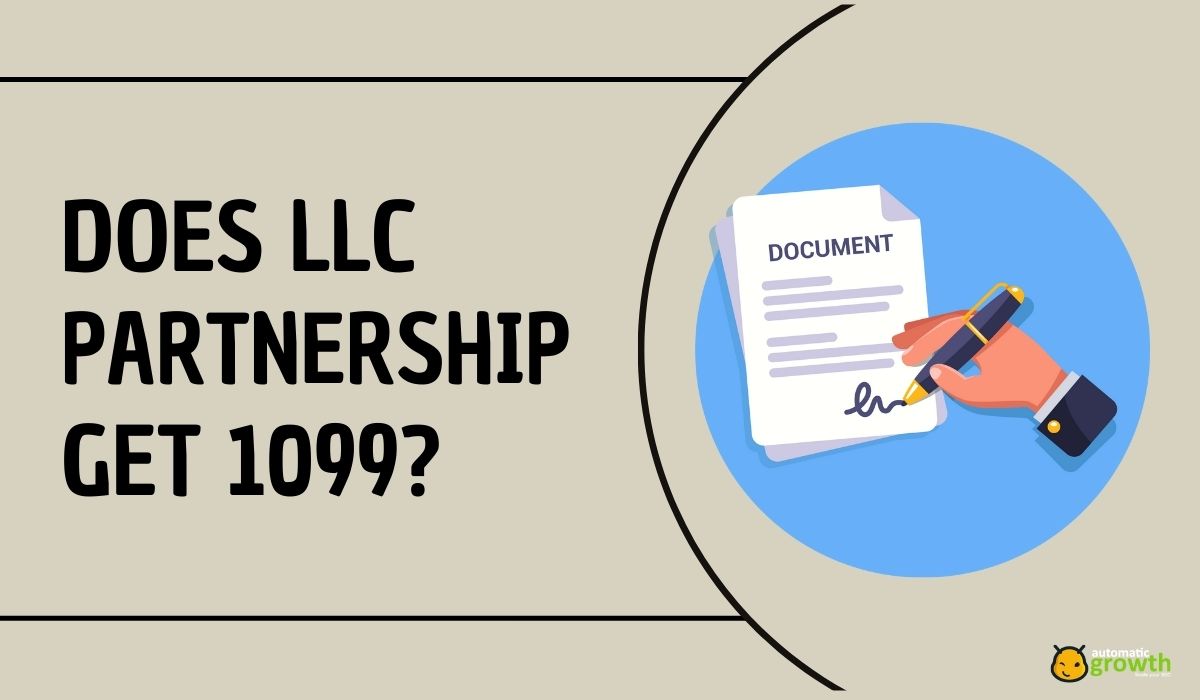Starting a general contractor business can be an exciting venture for those with a passion for construction and a talent for project management. However, before one can lay the foundation for a profitable business, it's crucial to understand the financial landscape and the costs involved in getting such an enterprise off the ground. How much does it cost to start a general contractor business?
In this comprehensive introduction, we will explore the initial startup costs, which range from licensing and insurance to equipment and staffing. We will also delve into the ongoing operational expenses that contractors must budget for, such as office space, marketing, and professional services.
Average Startup Costs for a Contracting Business
“Startup costs for small construction firms begin at approximately $50,000, while larger construction entities may encounter startup expenses upwards of $500,000.” |
The construction industry is a major component of the U.S. economy, with a wide range of services, including building construction, heavy and civil engineering construction, and specialty trade services. The market size of the construction sector in the US increased faster than the economy overall, growing an annualized 2.4% to $2.4 trillion between 2017 and 2022. [1] This growth signifies a strong demand, luring businessmen into starting their own contractor ventures.
So, how much does it cost to start a general contractor business? The average startup costs for a contracting business can vary widely depending on a range of factors, including the size of the business, the region in which it operates, the specific services offered, and the initial resources available to the business owner.
For smaller construction businesses, initial startup costs can be estimated to start around $50,000. This figure accounts for the essential expenditures such as acquiring the necessary tools and equipment, securing a dependable work vehicle, obtaining the appropriate licenses and insurance, and covering social media promotions to establish a presence in the market. On the other end of the spectrum, larger construction companies may find themselves facing startup costs that can ascend to $500,000 or more.
Breaking Down the Startup Costs of Construction Business
Let’s take a closer look at some common expenses that most general contractors will need to consider when starting their business. These costs can be broken down into several key categories:
1. Business Registration and Licensing Fees
The cost of forming a legal entity like an LLC or corporation typically ranges from a few hundred to a few thousand dollars. Additionally, contractor and business licenses, which vary by state and specialty, may cost from $50 to several hundred dollars, with some states requiring a proficiency exam.
2. Insurance Costs
General Liability Insurance is critical for protecting your business against legal actions and accidents, with premiums starting around $500 to $1,000 annually for small contractors. Workers' Compensation Insurance is also mandatory if you have employees, with costs linked to your payroll and the nature of the work.
“Between 2017 and 2022, the U.S. construction sector's market size outpaced the overall economy, expanding at an annual rate of 2.4% to reach $2.4 trillion.” |
3. Bonding
A surety bond is a critical and often mandatory component in the construction and general contracting industry. It serves as a risk mitigation tool, providing a financial guarantee that the contractor will adhere to the terms of a contract and comply with various laws and regulations.
There are several types of surety bonds relevant to general contractors:
-
Bid Bonds: This ensures that a contractor submits a bid in good faith and will enter into a contract at the bid price if selected.
-
Performance Bonds: This bond guarantees that a contractor will complete a project according to the contractual terms.
-
Payment Bonds: This assures that the contractor will pay subcontractors, laborers, and suppliers, protecting the project owner from liens against the property.
-
License Bonds: These are often required by states or municipalities to grant a contractor license, ensuring compliance with local laws and regulations.
The premium for a surety bond typically ranges from 0.5% to 3% of the bond amount for those with good credit and a solid financial history. For example, if a contractor needs a $100,000 performance bond for a project, and they qualify for a lower rate due to good credit, the cost could be as low as $500 (0.5% of $100,000). Conversely, for those with less-than-ideal credit, the cost could rise to $3,000 (3% of $100,000) or more.
4. Tools and Equipment
The initial investment in tools and heavy equipment is a substantial part of the startup costs for a general contractor. This category can be quite extensive, as it includes everything from basic hand tools to large construction machinery.
-
Hand Tools and Power Tools: You'll need a variety of hammers, saws, drills, wrenches, and other specialized tools specific to the services you offer. Quality power tools are more expensive but provide efficiency and durability. A comprehensive set of tools for a single worker can range from $1,000 to $5,000.
-
Job-Specific Equipment: Depending on your specialty, you may need specific equipment such as concrete mixers, scaffolding, ladders, compressors, or painting gear. Each of these can add several thousand dollars to your startup costs.
-
Heavy Machinery: If your work involves excavation, grading, or large-scale construction, you may need to purchase or lease heavy machinery like backhoes, excavators, or cranes. The cost of purchasing heavy machinery can be significant, often exceeding $100,000 per piece. Leasing can mitigate upfront costs but requires careful management to avoid long-term financial strain.
-
Technology and Software: Modern construction equipment often includes technology components for improved precision and efficiency, such as laser-guided tools or GPS-equipped machinery.
-
Maintenance and Storage: Tools and machinery require regular maintenance to keep them in working order, and this can add to the operating costs. Storage costs for larger equipment can also be significant, especially if you do not own your own storage space.
The fluctuating costs of materials and labor represent significant challenges to profitability. For example, during the COVID-19 pandemic, the industry saw a sharp increase in the cost of lumber and other materials, which squeezed profit margins for many contractors. [2]
5. Vehicle Expenses
The transportation needs of a general contractor business are not limited to just getting from point A to point B; vehicles also serve as mobile storage and sometimes as a mobile office.
-
Acquisition Costs: The cost of a new work truck or van suitable for contracting work can range from $20,000 to $50,000 or more, depending on the size and capabilities required. Used vehicles can reduce this cost but may come with higher maintenance expenses.
-
Customization: Many contractors need to modify their vehicles with tool racks, storage systems, or branding wraps. These customizations can add several thousand dollars to the cost of each vehicle.
-
Maintenance and Operation: Vehicles incur regular costs such as oil changes, tire replacements, and general maintenance. Fuel is a significant ongoing cost, especially for businesses that cover a large service area or operate a fleet of vehicles.
“The general contracting industry has been experiencing a period of growth, driven by trends in residential and commercial construction, infrastructure spending, and real estate development. “ |
6. Office Space and Utilities
The cost of office space rent varies widely by location, and, when combined with utilities and office supplies, can add several hundred dollars to your monthly outgoings.
7. Marketing and Advertising
Initial branding efforts such as website creation, business cards, and signage can run between $2,000 and $10,000. Regular marketing activities like digital advertising and participation in home shows may require a monthly budget of a few hundred to several thousand dollars.
8. Salaries and Wages
Hiring employees for your contractor business entails budgeting for salaries, taxes, and benefits, which can constitute a significant portion of ongoing business expenses.
9. Professional Services
Services such as accounting, bookkeeping, and legal advice can vary in cost from $1,000 to $5,000 annually, depending on the complexity required.
Analyzing the Growth of the General Contractor Industry
The general contracting industry has been experiencing a period of growth, driven by trends in residential and commercial construction, infrastructure spending, and real estate development.
The health of the housing market is a significant driver for residential contractors. Data from the U.S. Census Bureau and the Department of Housing and Urban Development showed that housing starts were robust, with over 1.5 million starts in 2021, which is a positive sign for residential contractors. [3]
Frequently Asked Questions
1. How much does it cost to start a general contractor business?
Industry research suggests that the average startup costs for a contracting business can range anywhere from $50,000 to $500,000 or more. However, it's important to note that these figures can vary depending on several factors, such as location, size of the business, and scope of services offered.
2. How long does it take to start a general contractor business?
The timeline for starting a general contractor business can vary depending on various factors, such as obtaining necessary licenses and permits, securing financing, hiring employees or subcontractors if needed, and setting up essential infrastructure. On average, it may take anywhere from several weeks to several months to complete all the necessary steps before officially launching your contracting business.
3. Do I need any specific certifications or licenses to start a general contractor business?
Yes. In most jurisdictions, obtaining specific certifications or licenses is mandatory for operating as a general contractor legally. The requirements may differ based on your location and the type of projects you plan to undertake.
4. What insurance coverage do I need for my general contractor business?
Insurance is crucial for protecting your contracting business from potential risks and liabilities. Some common insurance policies recommended for general contractors include general liability insurance, workers' compensation insurance, commercial auto insurance, and builder's risk insurance.
5. How can I estimate the costs of a construction project accurately?
Accurately estimating the costs of a construction project is essential for profitability and client satisfaction. Factors such as materials, labor, equipment rental or purchase, permits, subcontractors, and overhead expenses need to be considered. Utilizing specialized software or consulting experienced estimators can help you create detailed cost estimates based on project specifications and market rates.
Exploring Profitable Ventures
Starting a business requires meticulous financial planning and a clear understanding of the industry's landscape to ensure a solid foundation for any emerging contractor business. By carefully considering expenses, exploring funding options, and seeking expert advice when needed, you'll be better equipped to navigate the challenges that come with launching your own contracting company.
If the idea of transforming outdoor spaces appeals to you, why not consider starting your own landscape business? With a focus on design, horticulture, and creating beautiful, functional outdoor areas, a landscape business can be a rewarding and profitable endeavor. Begin your journey in this green industry and bring your vision of nature's aesthetics to life!
















